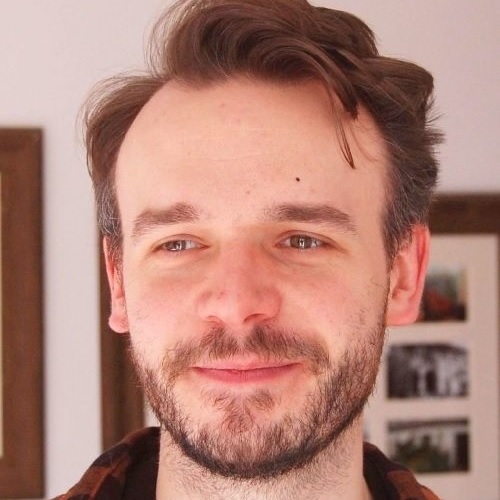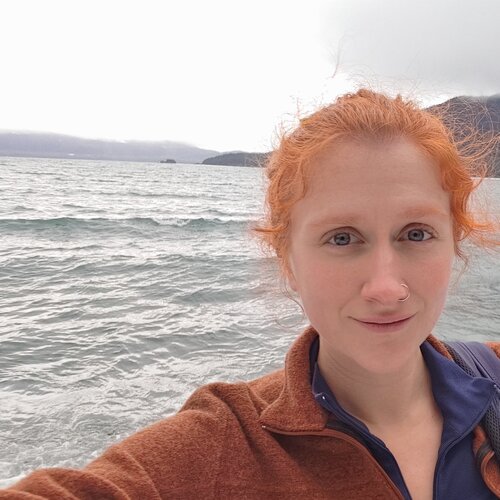PhD, MPhil, MRes Creative writing
ApplyResearch opportunities
As well as the popular MLitt in Creative Writing, and a research-led MRes in Creative Writing route at Masters level, we also offer PhDs in Creative Writing which may suit those who wish to pursue a particular sustained project. You can study the PhD in Creative Writing full-time, over three years, or part-time over six years.
You'll create a piece of imaginative writing in collaboration with a successful, published author – either the novelist and screenwriter Andrew Meehan (One Star Awake, The Mystery of Love), Dr Rodge Glass, novelist, nonfiction writer and biographer (Joshua in the Sky: A Blood Memoir, Alasdair Gray: A Secretary's Biography), the novelist and poet Sarah Bernstein (The Coming Bad Days, Study for Obedience), or another member of the Creative Writing team.
You can specialise in one of these genres:
- poetry
- fiction
- imaginative non-fiction
- hybrid writing
The length of your project can be negotiated with your supervisor, but will usually be around 80,000 words. All projects are different, and exact word counts will be tailored to particular projects, usually dependent on the form of the work, also the nature of the accompanying critical element that is also submitted as part of a PhD alongside the creative work. A good Creative Writing PhD contains these two parts - creative and critical writing - working in conversation with each other.
Previous PhD students at Strathclyde have gone on to notable success, such as the poet and performer Dr. Katie Ailes (I Am Loud Productions) and short story specialist Dr. Scott McNee (New Writing Scotland, 2022). As of September 2022, current PhD students in Creative Writing include:
- the novelist and short story writer Sindhu Rajasekaran (author of Smash the Patriarchy and So I Let it Be)
- poet, fiction and nonfiction writer Meredith Glasson-Darling (‘Notable Essay’ in Best American Essays, 2021)
- Sunday Times No.1 Bestselling author of The Young Team, Graeme Armstrong
Alex's Strathlife
Find out why Alex Wasalinko chose Strathclyde and what she thinks of Glasgow and the course.
I went to Scotland for the first time when I was a junior at university and fell in love with the country and I decided I wanted to come back to do my postgrad here...
The Place of Useful Learning
UK University of the Year
Daily Mail University of the Year Awards 2026
Scottish University of the Year
The Sunday Times' Good University Guide 2026
The MPhil & MRes
These one-year degree options offer the opportunity to work closely with two expert researchers in your field and produce a longer piece of work such as a novel, memoir or poetry collection.
General information on the Strathclyde MPhil and MRes degrees.
MPhil
- the MPhil thesis is 20,000-25,000 words (or equivalent for poetry, hybrid work, screen or playwriting)
- it is entirely research-led and has an additional critical commentary of 10,000-15,000 words
- one of the benefits of the MPhil is that you have the option to transfer to second year of a PhD if you have a satisfactory annual review
MRes
- the MRes thesis is 25,000 words (or equivalent for poetry, hybrid work, screen or playwriting).
- unlike the MPhil, it has a taught component (usually a 20-credit Research Skills class, and students can elect modules from across the Department of Humanities)
- you will also submit a 5000-word critical commentary

Faculty of Humanities & Social Sciences Scholarships
EU Engagement Scholarships are available to EU applicants who would have previously been eligible for Home (Scottish/EU) fee status.
Fees & funding
All fees quoted are per academic year unless otherwise stated.
Entrants may be subject to a small fee during the writing up period.
Fees may be subject to updates to maintain accuracy. Tuition fees will be notified in your offer letter.
All fees are in £ sterling, unless otherwise stated, and may be subject to revision.
Annual revision of fees
Students on programmes of study of more than one year (or studying standalone modules) should be aware that the majority of fees will increase annually.
The University will take a range of factors into account, including, but not limited to, UK inflation, changes in delivery costs and changes in Scottish and/or UK Government funding. Changes in fees will be published on the University website in October each year for the following year of study and any annual increase will be capped at a maximum of 10% per year. This cap will apply to fees from 2026/27 onwards, which will not increase by more than 10% from the previous year for continuing students.
| Scotland | £5,006 |
|---|---|
| England, Wales & Northern Ireland | £5,006 |
| Republic of Ireland |
If you are an Irish citizen and have been ordinary resident in the Republic of Ireland for the three years prior to the relevant date, and will be coming to Scotland for Educational purposes only, you will meet the criteria of England, Wales & Northern Ireland fee status. For more information and advice on tuition fee status, you can visit the UKCISA - International student advice and guidance - Scotland: fee status webpage. Find out more about the University of Strathclyde's fee assessments process. |
| International | £19,850 |
| Funding | Our postgraduate students are eligible to apply for doctoral studentships from the Arts & Humanities Research Council, the Scottish Graduate School for the Arts and Humanities and the Carnegie Trust for the Universities of Scotland. Take a look at our funding your postgraduate research web page for funding information. You can also view our scholarships search for further funding opportunities. |
| Postgraduate research opportunities | Search for all funded and non-funded postgraduate research opportunities. |
| Additional costs | International students may have associated visa and immigration costs. Please see student visa guidance for more information. |
Please note: the fees shown are annual and may be subject to an increase each year.
Supervisors
| Supervisor | Areas of expertise |
|---|---|
|
|
|
|
| Andrew Meehan |
|
|
|
|
Our research
Storytelling is at the heart of our culture. Whether you’re interested in poetry, fiction, creative non-fiction, or screenwriting, we'll guide you towards telling the best story possible.
We combine the best creative instincts with first-hand experience in the creative industries. The world of storytelling is ever-changing, so we make sure to invite only the most relevant industry speakers from the worlds of broadcasting, publishing and digital media.

Support & development
The Graduate School
The Graduate School is a friendly and supportive study environment for research students studying subjects within Humanities & Social Sciences.
Our staff will support you through your studies and you'll become part of a community of students who get involved with our workshops, seminars and competitions.
Postgraduate Certificate in Researcher Professional Development (PgCert RPD)
Our PgCert RPD programme aims to ensure you get the most out of your current research activities at Strathclyde and helps you prepare for your future career as a researcher.
We'll help you recognise and develop your transferrable skills that'll have a positive impact on your research, now and in the future.
Careers
The University Careers Service can help you with everything from writing your CV to interview preparation. Take a look at our careers service pages to get more information.
Student support
From financial advice to our IT facilities, we have a wide range of support for all students here at Strathclyde. Get all the information you need at Strathlife.
International students
We've a thriving international community with students coming here to study from over 140 countries across the world. Find out all you need to know about studying in Glasgow at Strathclyde and hear from students about their experiences.


My whole journey at Strathclyde was instrumental for my career. It was here that I learned how to write essays to a higher standard, how not to write essays, how to express myself creatively, how to work as part of a team, how to publish and edit a book, how to wander the library and lose track of time reading about something new.

The close attention and dedication of my advisors to my critical and creative vision has been a force of nature, inspiration, and morale in a field that’s very difficult to break into.
Glasgow is Scotland's biggest & most cosmopolitan city
Our campus is based right in the very heart of Glasgow. We're in the city centre, next to the Merchant City, both of which are great locations for sightseeing, shopping and socialising alongside your studies.
Postgraduate research at the Strathclyde Doctoral School
The Strathclyde Doctoral School offers a vibrant, student-centred research and training environment, dedicated to supporting both current and future research talent.
Bringing together all four of our faculties, it is committed to enhancing the student experience, increasing research outputs and opportunities, and ensuring that training is delivered at the highest standard.
As a postgraduate researcher, you will automatically become a member of the Strathclyde Doctoral School.

Apply
Entry requirements
Normally, a first-class or upper second-class Honours degree, or overseas equivalent.
The Creative Writing PhD is recommended for applicants who show equal ability in academic scholarship as well as creative work. Before applying to study a PhD with us, it is encouraged that you contact a suitable supervisor who works in your proposed area to check their availability. You will also need to provide them with a draft research proposal (which you will also submit through the online portal). Please note that members of staff do not normally accept PhD students working on areas outwith the staff member’s area of expertise.
The application
Applications to undertake a PhD in Creative writing must include:
- your full contact details
- proof of English language proficiency if English isn’t your first language. For postgraduate studies, we require a minimum overall IELTS score of 6.5 or equivalent (no individual test score below 5.5, the test must be taken within two years of the programme start date)
- a proposal of between 1,500 and 2,000 words (see below for details).
- a 3-5 page writing sample
- two references, one of which must be academic
- transcripts and certificates of all degrees
Before you apply
In line with Humanities research proposals, the Creative Writing PhD proposal should be between 1,500 and 2,000 words and should cover:
- Title
- Research Question(s)
- Research Context
- Research Methods
- Preparedness: You should outline your suitability and preparedness for undertaking the proposed project.
- Environment: You should outline why you think Strathclyde’s School of Humanities is the best place to undertake your PhD; you should also indicate why you want to work with a particular named supervisor.
In outlining the Research Question(s), Context and Methods, your proposal must include an outline of your creative project as well as a detailed discussion of the critical component of the PhD. The critical component will comprise approximately 25% of the overall word count of your PhD. As the PhD is usually around 80,000 words in total, this means we expect the critical component to comprise approximately 20,000 words.
The critical component often takes the form of a study of a particular theme, theory, history, or specific element of craft in already published works. This will be a theme, theory, history, or element of craft that is relevant to your own creative project. The critical component may also reflect on the connections between the operation of these elements of craft in the published works and in your own creative practice.
Funding opportunities
Offered by the University: The University runs a number of schemes each year for incoming PhD students. These are advertised on our website in the autumn.
The main external funding body Creative Writing students apply to is SGSAH. There is an internal selection process in the autumn of each year.
There are a number of other external funding schemes you can apply to.
Accepting an offer
Once you've accepted our offer, we'll need you to fulfil any academic, administrative or financial conditions that we ask.
UK or EU students
If you're applying as a UK or EU student, you'll then be issued with your registration documentation.
MRes applications
Closing date for applications: Friday 24 April 2026
- Stage 1: applicants must apply online and have uploaded the required documentation, no later than Friday 24 April 2026 deadline. Late applications will not be accepted
- Stage 2: applicants who have been successful in the initial selection from Stage 1, will be called for interview by mid-May 2026
Start date: Oct 2025 - Sep 2026
Creative Writing
Start date: Oct 2025 - Sep 2026
Creative Writing
Start date: Oct 2025 - Sep 2026
Creative Writing
Start date: Oct 2025 - Sep 2026
Creative Writing
Start date: Oct 2026 - Sep 2027
Creative Writing
Start date: Oct 2026 - Sep 2027
Creative Writing
Start date: Oct 2026 - Sep 2027
Creative Writing
Start date: Oct 2026 - Sep 2027
Creative Writing
Start date: Sep 2026
Creative Writing
Start date: Sep 2026
Creative Writing
Start date: Sep 2027
Creative Writing
Start date: Sep 2027
Creative Writing
Start date: Oct 2027 - Sep 2028
Creative Writing
Start date: Oct 2027 - Sep 2028
Creative Writing
Start date: Oct 2027 - Sep 2028
Creative Writing
Start date: Oct 2027 - Sep 2028
Creative Writing
Contact us
Admissions - Graduate School
Telephone: +44 (0) 141 444 8400
Email: hass-pgr-applications@strath.ac.uk
Lord Hope Building Level 1 - LH128
141 St. James Road
Glasgow
G4 0LT

